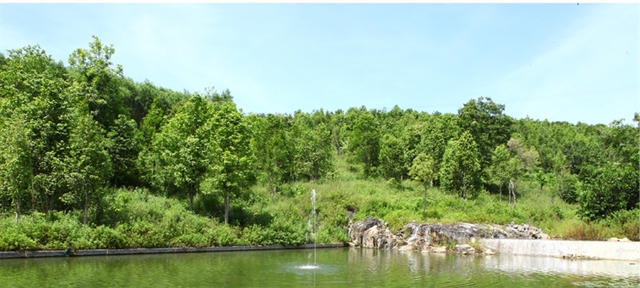 Sunday/Weekend
Sunday/Weekend
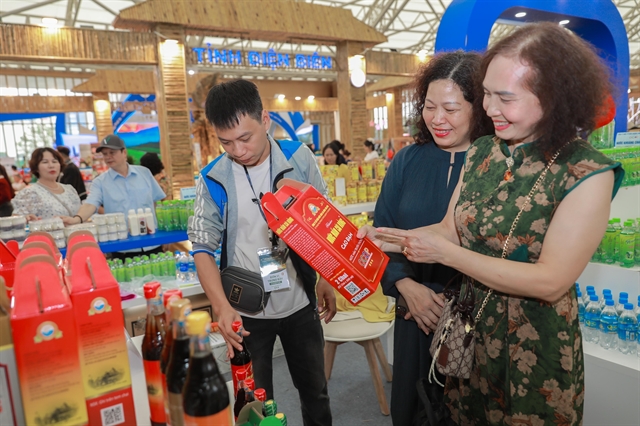
by Công Thành
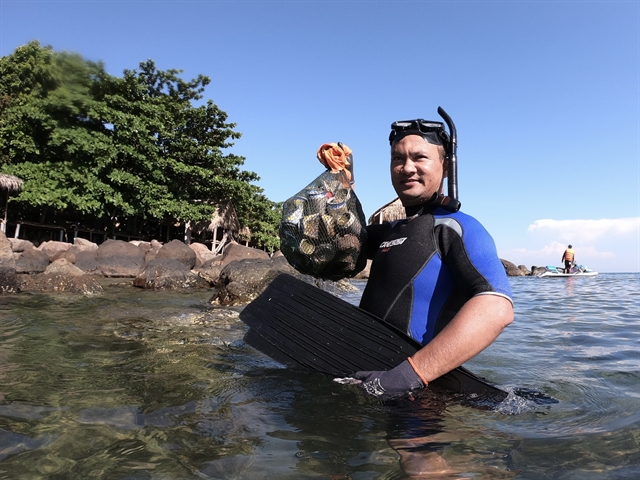 |
| Diving coach Đào Đặng Công Trung completes a trash collectiing trip in coastal waters off Sơn Trà Peninsula in Đà Nẵng City. Almost everyday he spends two hours to collect 20-30kg of rubbish from coral reefs off Đà Nẵng. Photo courtesy of Trung Đào |
Đà Nẵng Free Diving, a group of divers, has been set up to provide, free of charge, basic diving skills for tourists and ocean lovers exploring the coral reefs off Sơn Trà Peninsula in the central city, and involve them in practical exercises to clear rubbish from these delicate ecosystems as well.
The group has attracted more than 40 amateur and professional divers, who regularly participate in the cleaning of coral reefs.
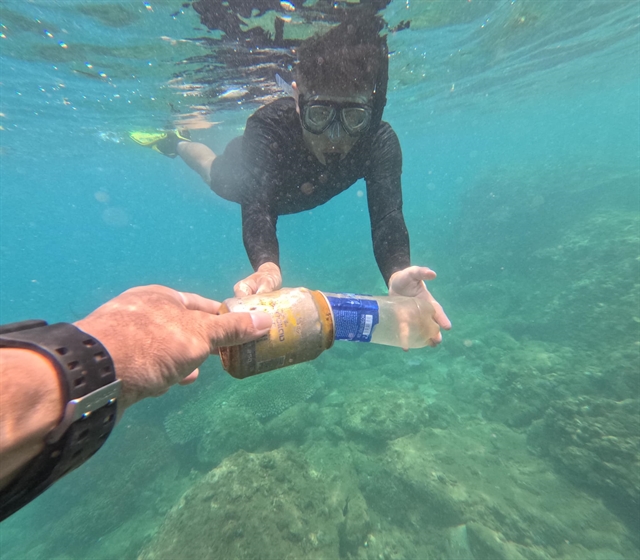 |
| Marine litter including plastic bottles and drink cans are removed from a coral reef off Đà Nẵng beach. Photo courtesy of Đà Nẵng Free Diving |
“It’s a final test for all trainees after a one-week course,” Đào Đặng Công Trung, a co-founder of the group, said referring to his free diving lessons.
His diving classes run daily from 5am to 7am between April and September.
“During the course, trainees are tasked with diving near coral reefs to collect rubbish left behind by fishermen and tourists. This is part of their contribution to the community and environmental protection,” Trung said.
The 44-year-old diving coach said his group often collected between 100kg and 200kg of rubbish during his two-hour diving trip every day, including fishing nets, plastic bottles, bags, and beverage cans in areas in the waters around Sơn Trà Peninsula. These areas are popular with kayakers and SUP paddlers.
Trung noted that the group's efforts had reduced waste on the coral reefs by 80 per cent.
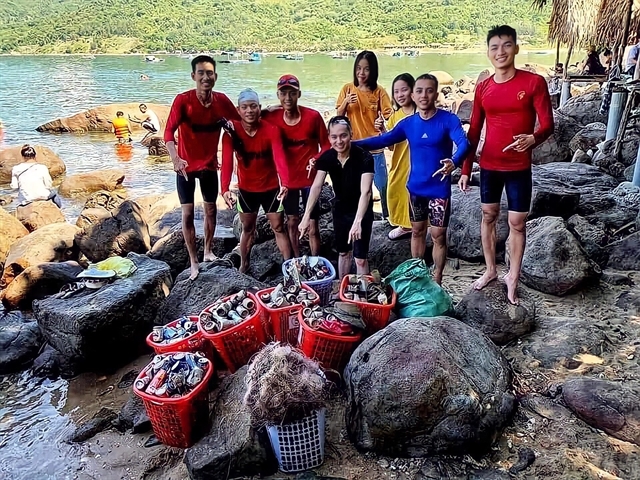 |
| Members of the Đà Nẵng Free Diving group collect rubbish on a diving trip in coastal waters off Đà Nẵng City. Photo courtesy of Trung Đào |
“Cleaning the coral reefs has become a regular activity for 15 to 20 volunteers each month. They receive diving instruction from our coaches and also learn how to remove rubbish from coral reefs carefully,” he said.
“It takes skill to do this properly. Coral is very sensitive to human contact and changes in water quality. Since coral grows just one centimetre per year, young coral can be easily damaged by a single misstep.”
Lê Thuý Vi, a female diving trainee, joined the group to test her body's limits under deep water pressure.
“I initially joined to practise diving, but my first lesson was on marine environment protection and coral restoration,” Vi said. “We were instructed not to harm the coral under any circumstances and to never dispose of waste in the sea.”
Vi, 41, is the smallest diver in the group, but able to dive to a depth of 3m, while others reached 6m.
“All members are encouraged to clean the coral and warn others not to litter at sea,” she said. “I express my love for the ocean and environment by participating regularly in the clean-up programme.”
“We’re advised not to use chemical sunscreen before diving as coral is highly sensitive to such contaminants. Organic skincare products are preferred. I believe the marine environment will improve if people reduce their waste.”
She also recalled an instance when her group of nine divers rescued coral from a massive ‘ghost’ net left behind by fishermen.
“It was hard work, as we had to cut through every section of the net carefully. We hope that local communities and tourists will learn from our actions and contribute to marine protection. We don’t collect rubbish for fun; we do it to ensure a cleaner environment for everyone,” she said.
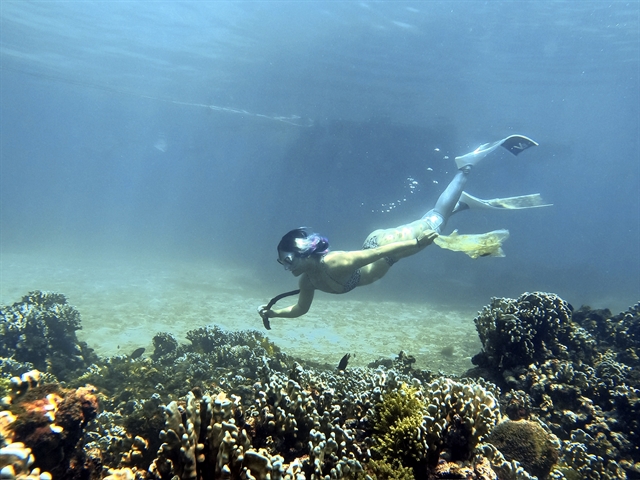 |
| A female diver explores the beauty of coral at sea in central Việt Nam. A voluntary cleaning programme, which was promoted by Đà Nẵng Free Diving group, has drawn the participation of hundreds of young people in protection of coral reefs and beaches from pollution. Photo courtesy of Đào Đặng Công Trung |
The group has organised a large-scale clean-up drive in collaboration with the Sơn Trà Tourism Beaches Management Board, mobilising 200 young divers to clean the coral reefs around Sơn Trà Beach and other sites on the peninsula.
Their efforts extend beyond the waters off Đà Nẵng to Chàm Islands in Quảng Nam, Lý Sơn Island in Quảng Ngãi, Phú Quốc Island in Kiên Giang, and islets off Bình Định Province.
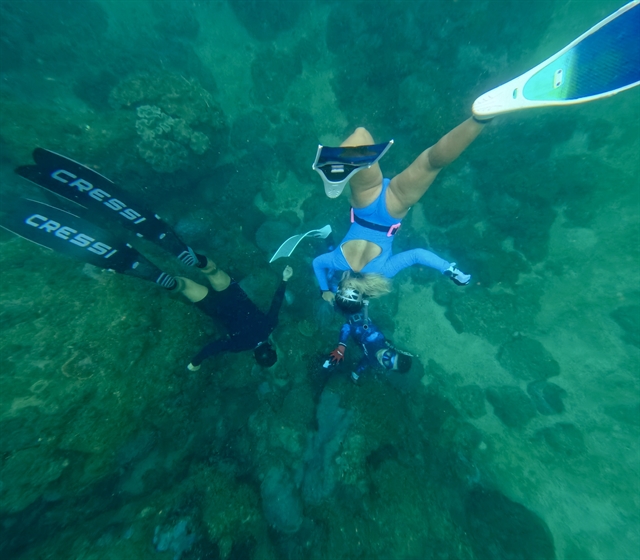 |
| Learner divers practise in water off Đà Nẵng. They also join garbage collection in keeping coral reefs and marine environment off rubbish pollution. Photo courtesy of Đà Nẵng Free Diving Group |
“The coral reefs off Sơn Trà Peninsula are stunning, but the marine ecosystem has been polluted by plastic bags, drink bottles, fishing nets, and other waste,” he said.
“We’ll continue our regular activities to promote marine and coral reef protection. We hope that more people will stop dumping waste in the sea, on the islands, and on the mainland, and join us in our eco-friendly actions.” VNS

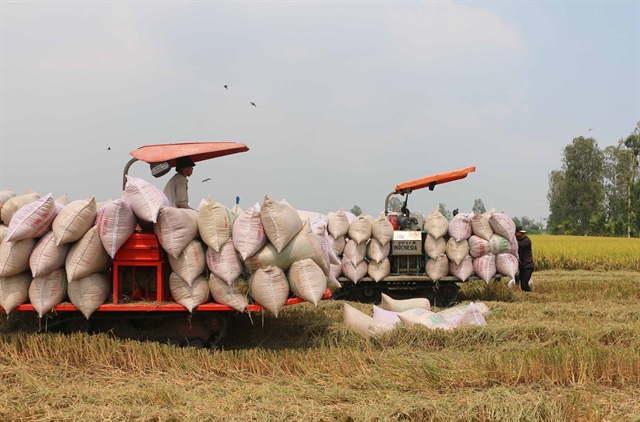
.jpg)

